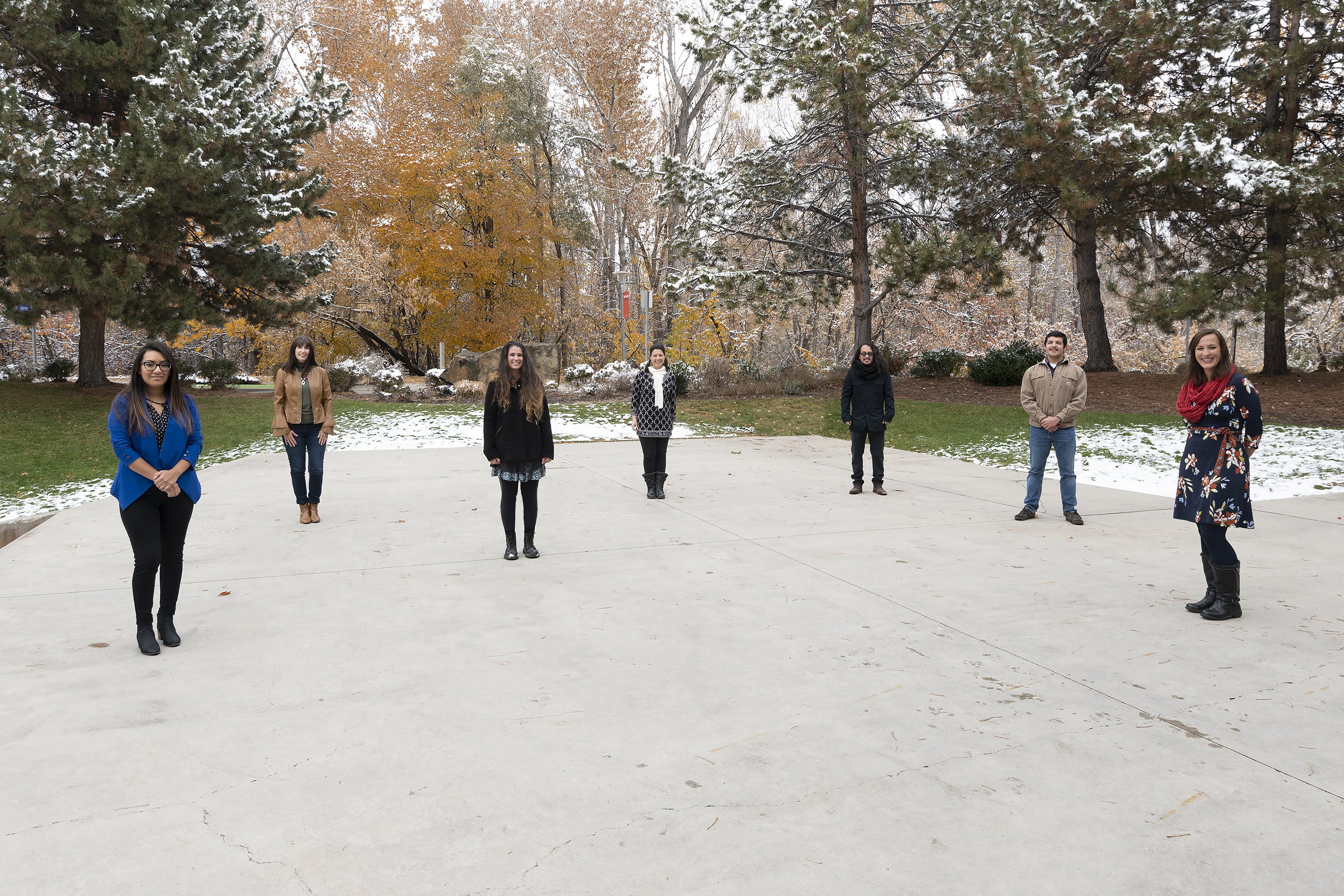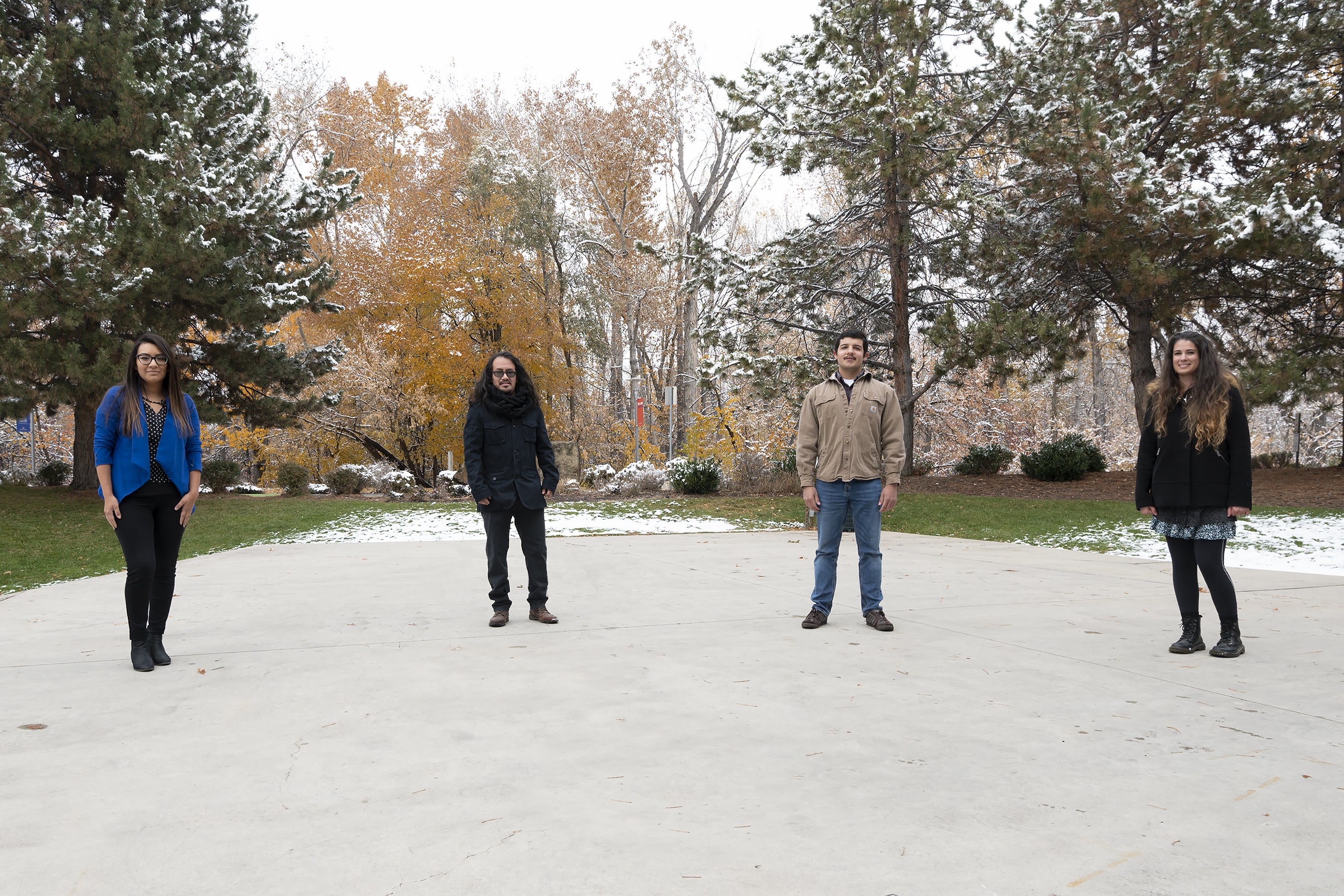
“When we started on my undergrad honors thesis, I remember that first feeling of fear about ‘how long am I going to take to read these’, and ‘am I really going to understand what is going on here’ and ‘is my English good enough?’” recalled Cristina Barber, a doctoral student who came from Spain in 2017 to study in Boise State’s ecology, evolution and behavior program.
Scientists and researchers across the world conduct groundbreaking work in hundreds, perhaps even thousands of languages daily. In a 2015 report, the U.S. Census Bureau revealed that there are at least 350 languages spoken in the U.S. alone. Yet 98 percent of science publications are in English, according to a 2020 study published in PLOS journal by Valeria Ramírez-Castañeda.
At Boise State, 13 percent of the university’s 2019-2020 student body identifies as Hispanic or Latinx. However, for many Hispanic students there is a stigma that their first language, Spanish, does not belong outside of the home, let alone in higher education settings, explains World Languages assistant professor Carolina Viera.
That’s where Project Scientia comes in. Taking its name from the Latin word for “science,” this project is the product of a team of Boise State faculty, graduate students and undergraduates working to translate science into Spanish, and make science more inclusive and accessible for the Hispanic community, both on and off campus. The project’s full name is “Project SCIENTIA: Communicating STEM Research in Languages other than English,” as it seeks to eventually widen its scope to include more languages.

In this project, doctoral students gain precious and professionally transferable experience communicating the value of their research and educating undergraduate students in their native language. Both groups also learn to navigate the inherent challenges of switching between languages in science, something researchers must do constantly.
The team members include College of Arts and Sciences faculty Jen Forbey, Carolina Viera, Kelly Arispe and Spanish language coordinator Fátima Cornwall; doctoral students Barber and Carlos Linares; and undergraduate students Eduardo Canales, Karen Hernández and Yuliana Cisneros. Project Scientia receives support through a GEM3 (Genes by Environment- Modeling, Mechanisms, Mapping) grant.
For Linares, a doctoral candidate in the ecology, evolution and behavior program, being born in Mexico and speaking two languages as a researcher is both a blessing and a curse.
“[In English] you can communicate with someone from Zimbabwe, or I can talk about my research with someone from Japan. But it’s tricky because we lack the emotional attachment of the word that we have in Spanish,” said Linares. “That second language that comes with being a native speaker is like having a second mind. You can think about problems in a different way but you can’t transmit it; it’s like this invisible barrier that you can’t show English speakers how there is a different way of perceiving this same phenomenon.”
Viera says that Project Scientia also was important for undergraduate students because it “allowed them to participate in a project in which they saw that their family language is something actually being used to disseminate science. This reinforces the idea that they have to be proud of who they are and the language that they speak.”
Additionally, through the creation of podcasts and blog posts, the team’s ultimate goal is increasing the enrollment of the Latinx community in STEM degrees in higher education. The podcasts are available at Genes by ENvironment
“El proyecto va más allá que la simple traducción de textos. Cada lengua tiene su propia cultura e identidad asociadas a la misma y, en ese sentido, lo que hacemos en este proyecto es reivindicar que el español es un lenguaje con el prestigio suficiente como para que sea considerado válido para divulgar la ciencia,”
Carolina Viera
“This project goes beyond mere translation of texts. It’s a matter of each language has its own identity and its own culture attached to it, and in that way, what we are doing in this project is actually revindicating the Spanish language as one with prestige enough to be considered a valid language in which science can be disseminated,” Viera said.